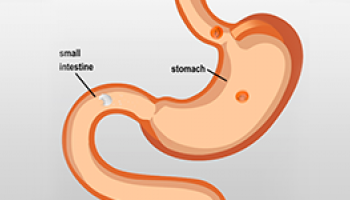FAQs
-
Should I take aspirin if I suspect I am having a heart attack?
Consult with your doctor in advance about whether you should take aspirin if you suspect a heart attack. Research suggests that chewing an aspirin during a heart attack can reduce the risk of death or complications from the heart attack. If you suspect you are having a heart attack, you should seek emergency medical care immediately. The emergency responder will ask you questions to determine your condition and whether aspirin is advised.
-
How can aspirin help prevent heart attacks?
The common cause of heart attacks is a shortage of blood supply to the heart. Blood supply blockages are typically the result of fatty plaque accumulating in the lining of an artery. As this plaque accumulates, your blood flow can slow or even stop, causing a blood clot. A heart attack can occur when a blood clot blocks an artery leading to your heart. Aspirin is a blood thinner and helps to prevent blood clots from forming, which may help prevent heart attacks.
-
Should I take Ecotrin® with water or food?
Drinking a full glass of water (8oz) with Ecotrin® will accelerate the absorption of the medicine in your body. Some people also find that taking Ecotrin® with food reduces stomach irritation.
-
How many Ecotrin® tablets should I take?
Each individual has unique circumstances, so speak with your healthcare professional before you start an aspirin regimen. If your doctor does prescribe a daily aspirin regimen, they will direct you what dosage to take and how frequently. For a daily regimen, most people take one 81mg tablet. Do not take more than the daily dosage as indicated in the directions on the package.
-
What does “safety coating” or “enteric coating” mean?
Safety (or “enteric”) coating is special coating on each tablet that delays the absorption of aspirin in your body until after it passes through your stomach. Delaying the absorption of the tablet until it reaches your small intestine protects your stomach from coming in contact with aspirin and reduces potential irritation like stomach bleeding and ulcers that can occur when taking aspirin regularly.
Ecotrin® aspirin is always safety coated – it’s even in our name: E-COT-RIN means Enteric Coated Aspirin. If your doctor recommends an aspirin regimen, consider a safety coated aspirin like Ecotrin®.
-
Is Ecotrin® aspirin safe?
Aspirin is one of the oldest commercially available pain relievers, having been sold for more than a century. As such, it has been broadly researched for safety risks. If your doctor recommends taking aspirin, Ecotrin® safety coated aspirin is safe and effective when used as directed.
While uncommon and typically resulting from continued high dosage aspirin use, certain side effects, such as stomach bleeding, can be very serious for some people. Ecotrin® is always safety coated to help prevent stomach irritation, but long-term use of aspirin must be directed and monitored by your doctor. Read more about safety coating below.
-
How does aspirin work?
Pain sensation is the result of your nerves sending an electrical signal to your brain. When you get injured, the damaged tissue releases chemicals called prostaglandins, which are like hormones and cause the tissue to swell. They also intensify the electrical signal coming from the nerves, which increases the pain you feel.
Aspirin is part of a class of drugs called NSAIDs (Non-Steroidal Anti Inflammatory Drugs). Aspirin and other NSAIDs are widely used to chemically address these nerve signals by blocking the effects of certain enzymes that create prostaglandins. This means less pain and less swelling.
In addition to chemically blocking your body’s pain signals, aspirin can also reduce the risk of heart attacks and certain strokes. Aspirin works to prevent the platelets in your blood from clumping and clotting in your arteries, thereby reducing these cardiovascular risks. Aspirin is the only OTC pain reliever known to have these benefits.
Aspirin is not appropriate for everyone so be sure to talk to your doctor first before starting a daily aspirin regimen.


